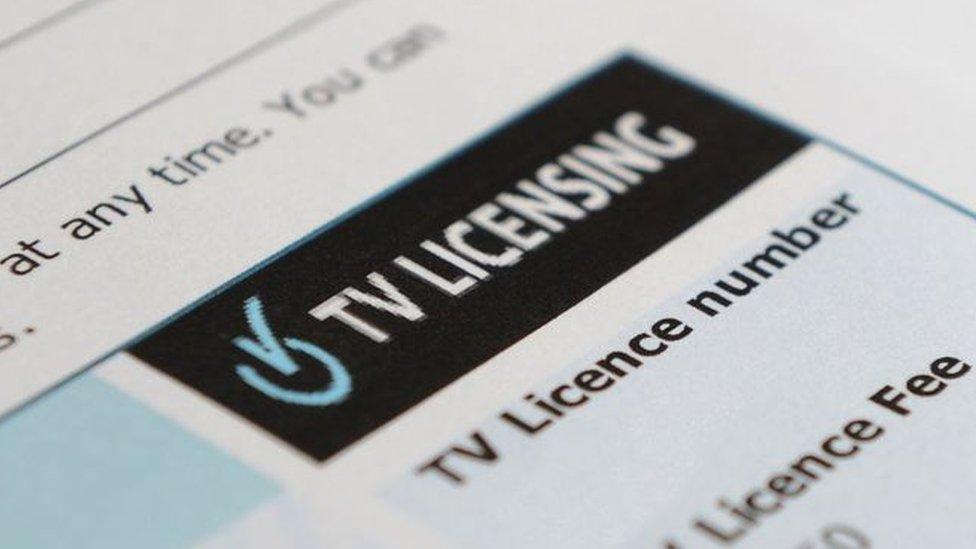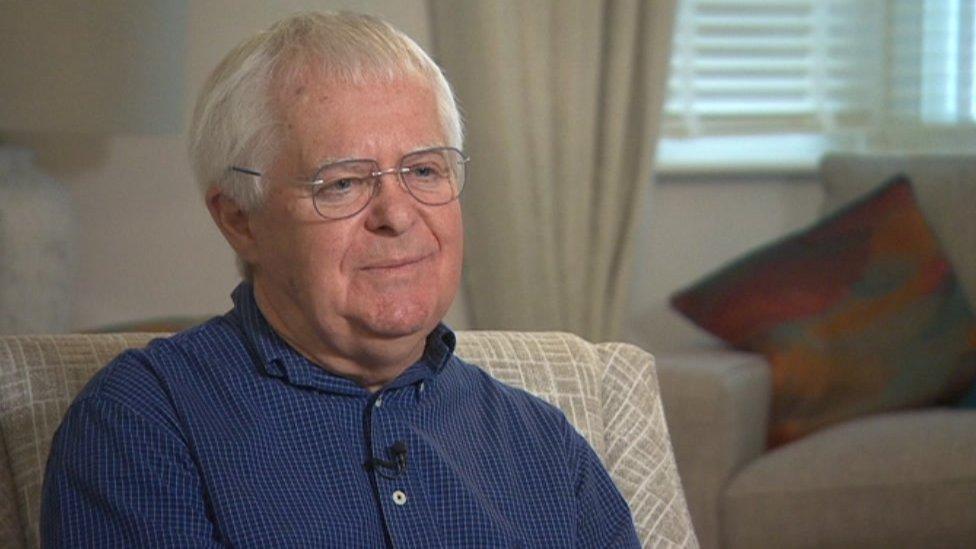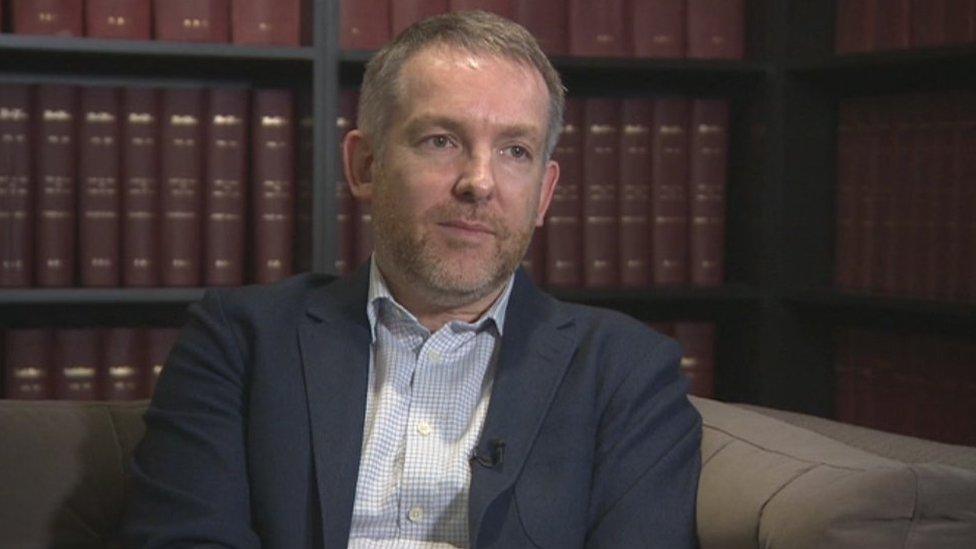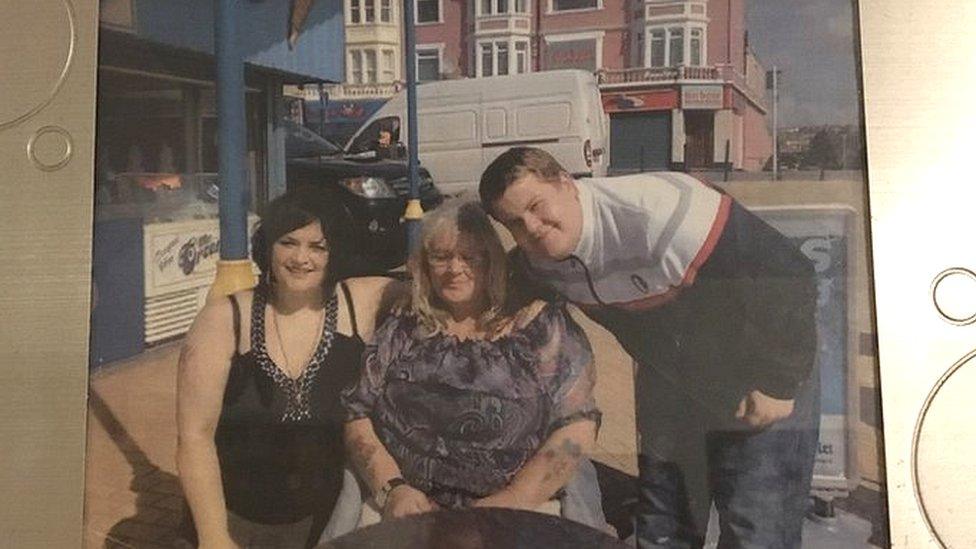Ron Jones calls on BBC to improve portrayal of Wales
- Published

The head of independent TV production company Tinopolis has called on the BBC to improve its portrayal of Wales.
Ron Jones has called for a change of strategy, and for greater scrutiny of the BBC by Welsh politicians.
Responding to the debate on the future of the licence fee, Mr Jones said the survival of BBC Wales and S4C was dependent on the current system.
The BBC has not responded directly to his comments, but has said it welcomes the discussion about its future.
As executive chairman of Llanelli-based Tinopolis, Mr Jones is responsible for thousands of hours of programming in Wales and internationally.
His business is responsible for various programmes for S4C including the nightly magazine show Heno.
Mr Jones was discussing the future of the licence fee in the wake of the Westminster government's decision to launch a consultation on decriminalising non-payment of the licence fee, and follows anonymous briefings to some newspapers that cast doubt on the survival of the BBC's funding model.
Ron Jones said: "We have to be selfish in Wales and accept that, in a situation where the BBC fills the gap that the market can't fill, only something similar to the current model will work.
"What we must not do is to tell the BBC: 'Okay guys, keep going, we will support you'.
"We need to have a better understanding of what type of service is needed in Wales, and we need a new, more democratic way of dealing with how the BBC is scrutinised in Wales."
Mr Jones has criticised some recent BBC Wales English language programmes, including Pitching In and The Tuckers, saying the series "show this disconnect between how Wales sees itself, and how the BBC decides to describe and portray Wales from time to time. And that's dangerous.
"I don't think there is an understanding at the BBC of what it needs to be doing now, in terms of providing its service within Wales."

Ron Jones: "I do not believe that devolution of broadcasting is an option"
While he wants to see more scrutiny of the BBC by Cardiff Bay politicians, Mr Jones does not support the transfer of regulatory powers from Westminster to Cardiff Bay.
"Although at present I do not believe that devolution of broadcasting is an option, I believe that creating a democratic structure of accountability to the assembly, in particular, is something we must have if we are to support the BBC from here on," he said.
The BBC is certainly looking for support.
On Monday, BBC Wales director Rhodri Talfan Davies warned of the possible consequences of anonymous briefing about changes that may take place.
While appearing on Radio Cymru's Dros Ginio programme, Mr Talfan Davies said: "There is no doubt that public money and co-investment are at the heart of the success of BBC Wales and S4C, and have been for decades.
"And the idea that, as a nation, we would lose the kind of coverage that Radio Cymru and Radio Wales, and BBC One Wales, are delivering - that would be vandalism."
In a subsequent interview he was more measured, but emphasised the need for public money to support Welsh broadcasting.
Mr Talfan Davies said: "There's always a debate about the BBC, there's always a debate about the licence fee. And we welcome that. But we have to be cautious.
"The licence fee underpins all BBC Wales activity, all S4C activity, and supports a significant drama industry here in Wales as well.

Rhodri Talfan Davies: "The licence fee underpins all BBC Wales activity, all S4C activity, and supports a significant drama industry"
"So we need to be very careful that we do not undermine what has been achieved due to the specific licence fee investment in Wales."
S4C will contribute to the consultation on decriminalising non-payment of the licence fee.
A spokesman for the broadcaster said: "It is important to realise that not only is BBC funded by it, but from 2022 onwards the whole of S4C's budget will come from the licence fee.
"The BBC also provides 10 hours of programmes by statute, which are also funded from the licence fee."
According to Mr Jones, maintaining the BBC's Welsh services goes hand in hand with any campaign to protect S4C.
"If we lose the fight for the kind of BBC that we need, then we have no hope of fighting for the kind of S4C that we need.
"And one is as important as the other," he said.
"I am not that happy with the current model, the partnership between S4C and the BBC.
"But this is a conversation, this is a battle about the future of the BBC and we have to win that fight first.
"But the BBC must be much more prepared to adapt to the needs of Wales than they have been in the past."
- Published20 December 2019

- Published4 December 2019
